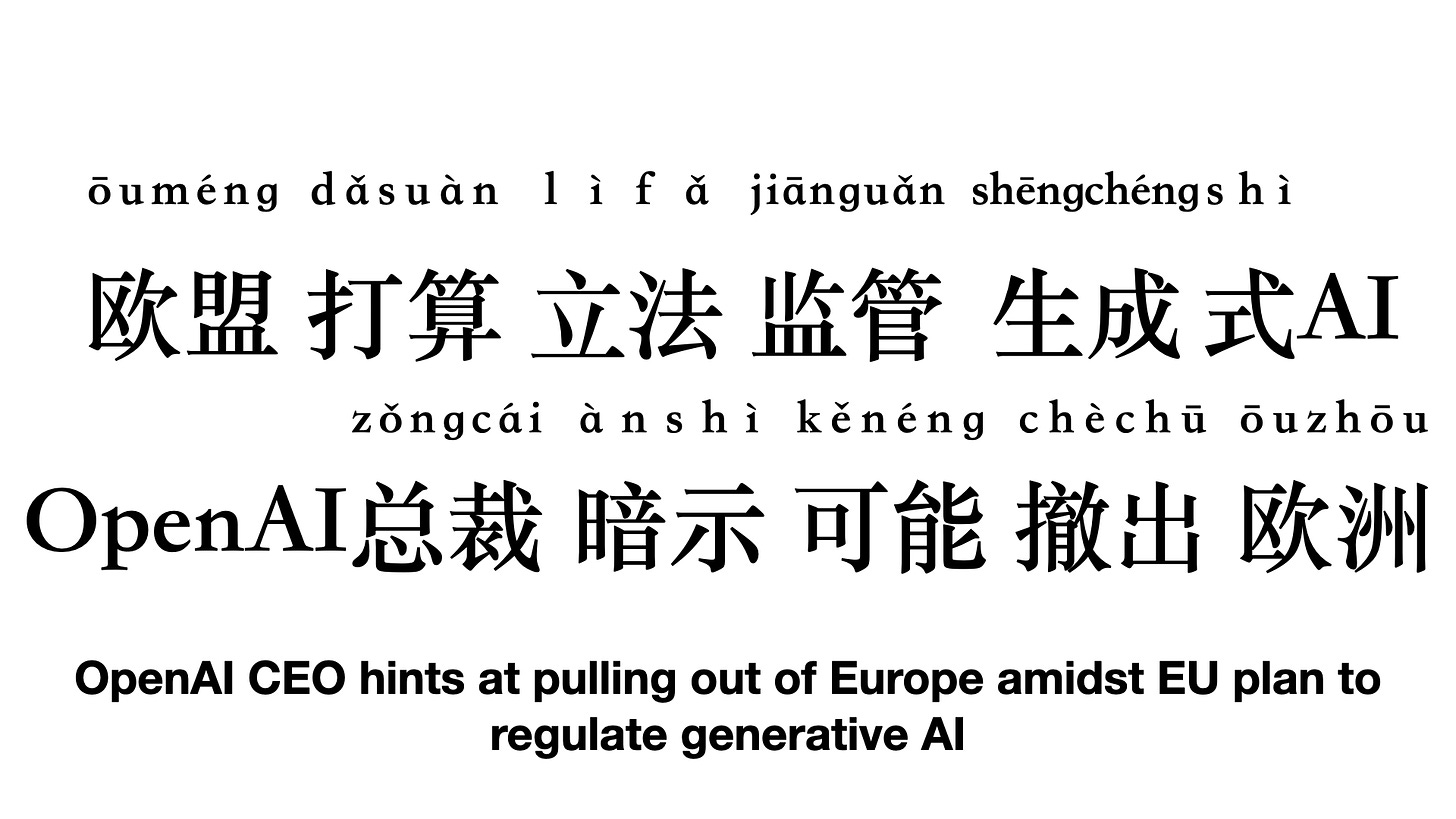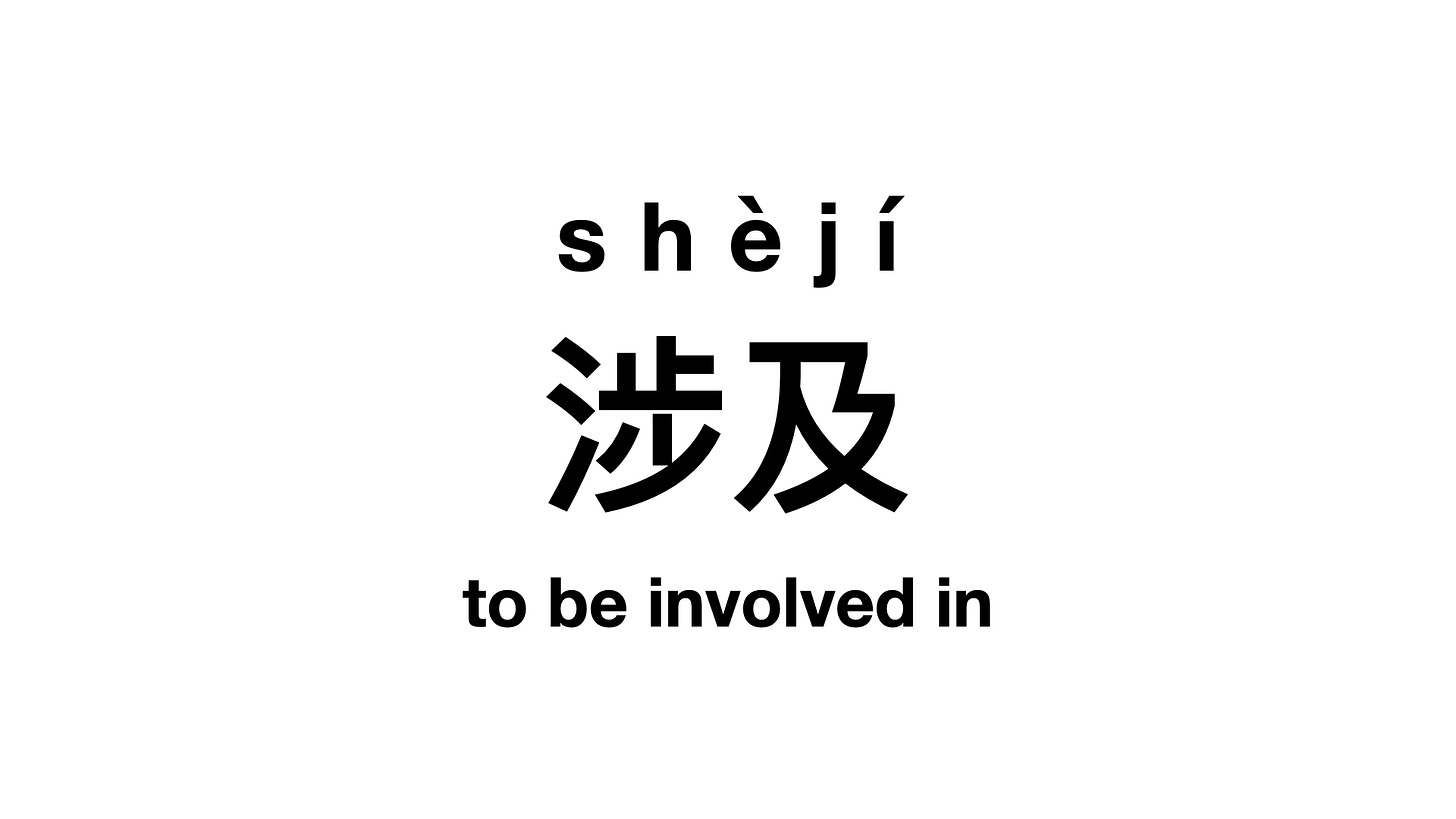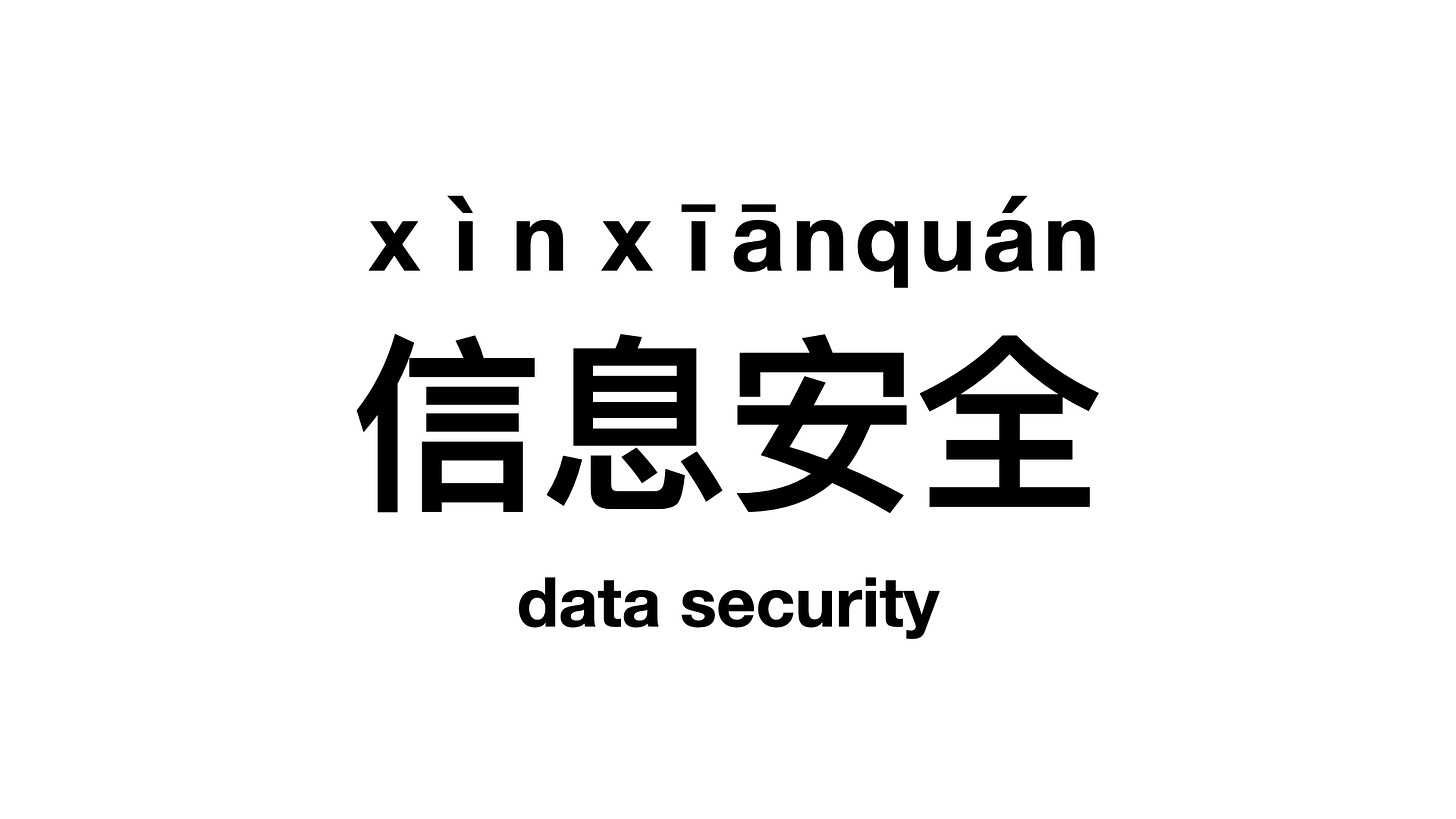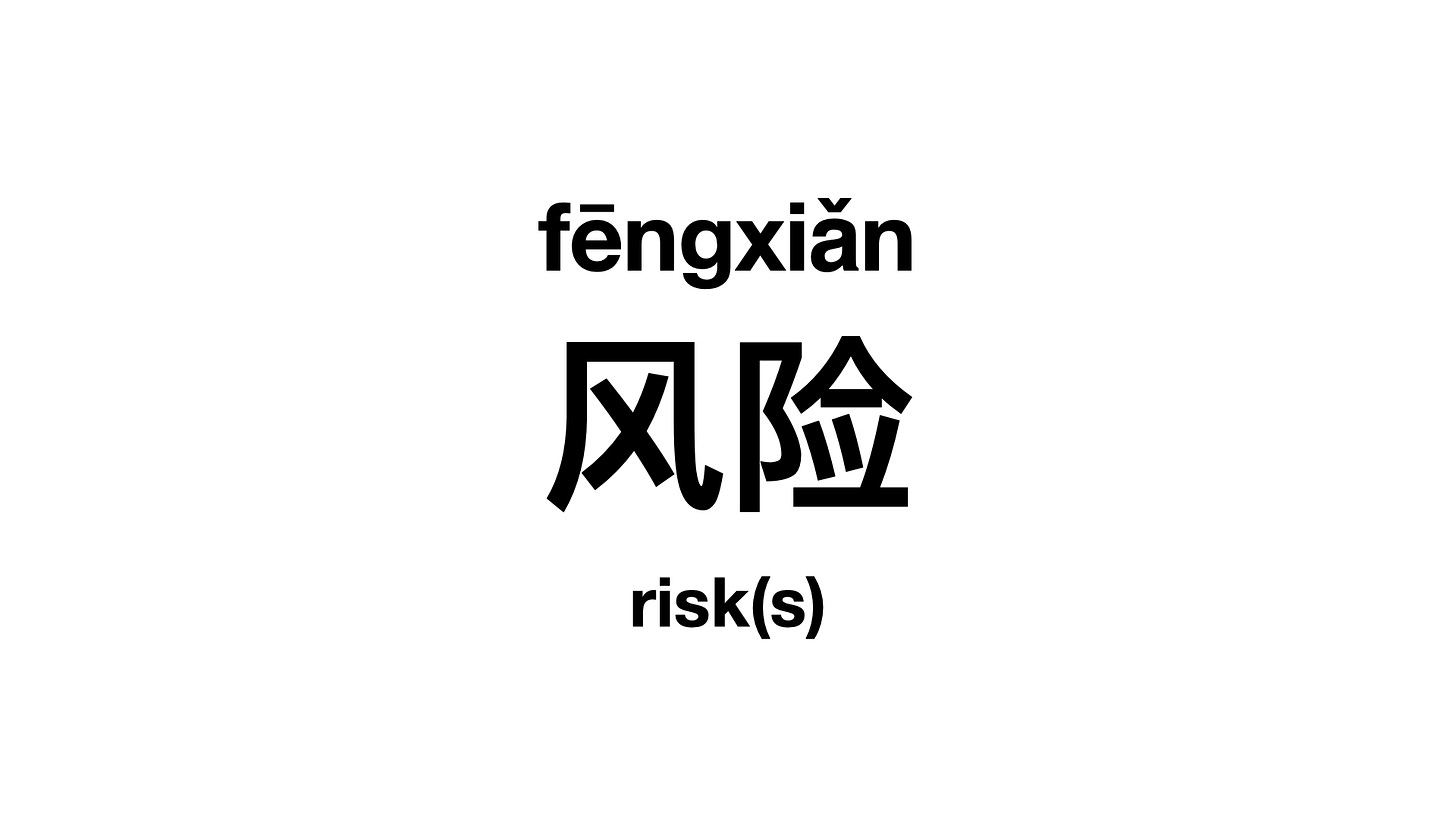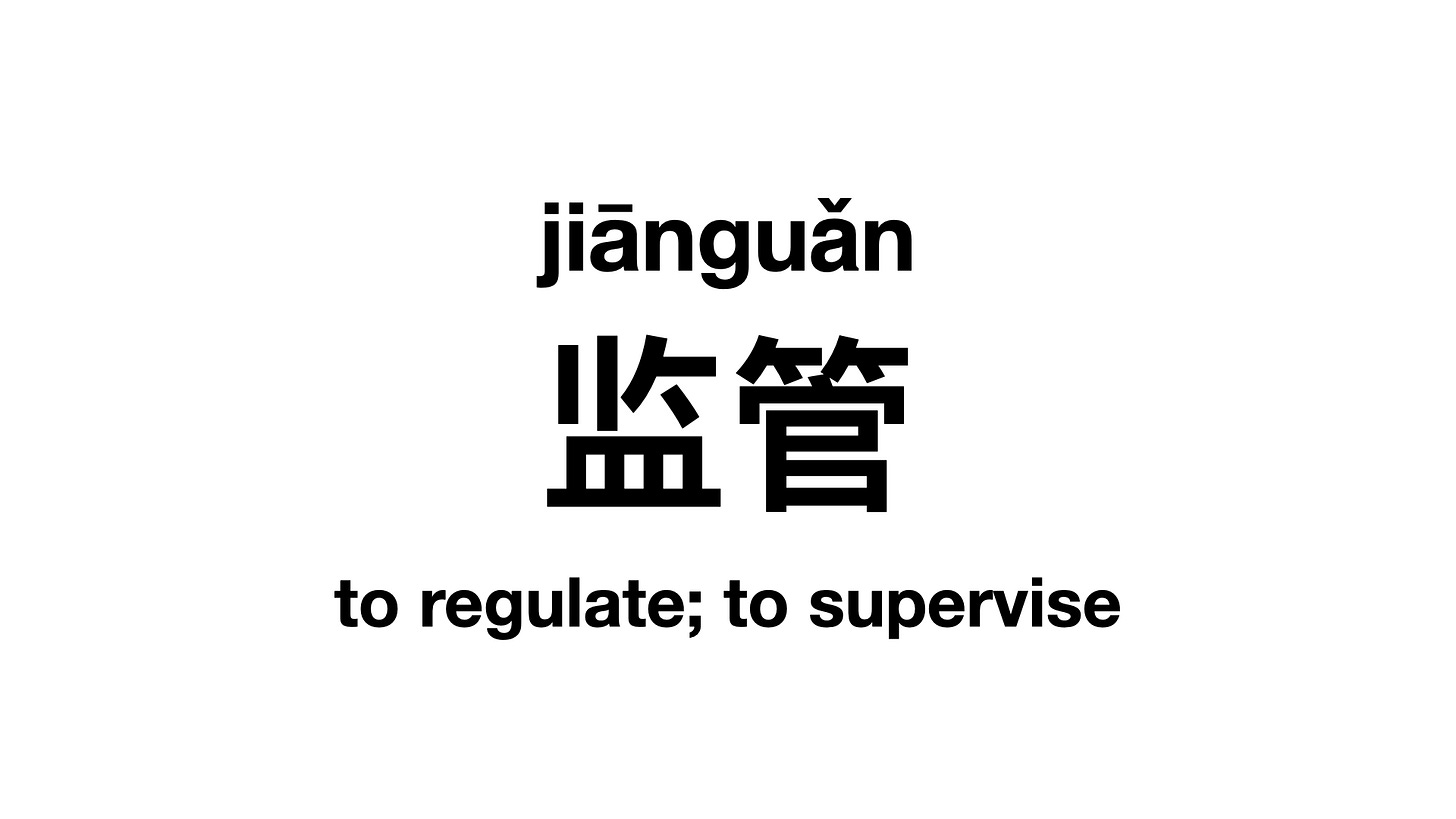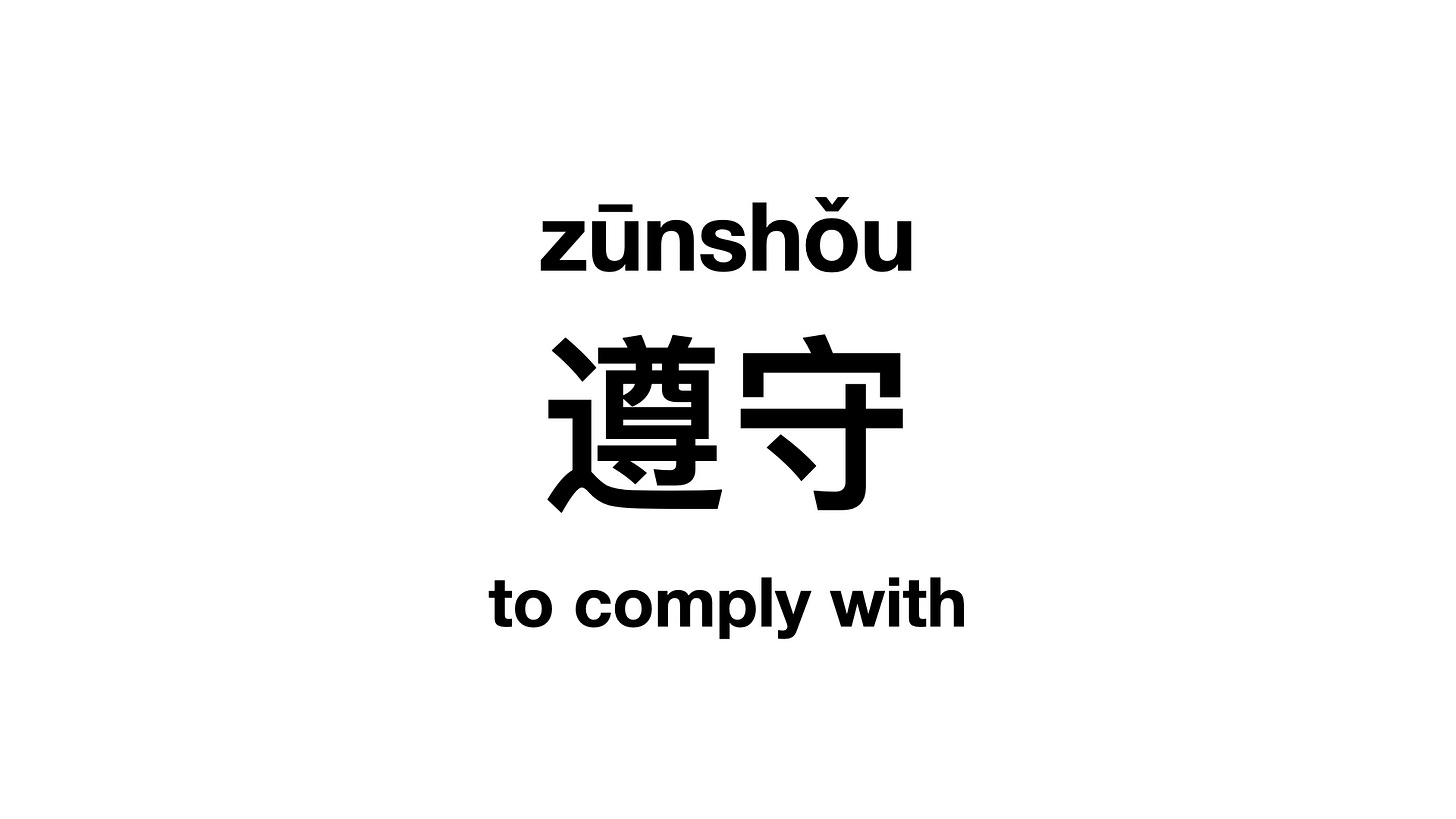News Story #03 欧盟打算立法监管生成式AI OpenAI总裁暗示可能撤出欧洲
OpenAI CEO hints at pulling out of Europe amidst EU's plan to regulate generative AI
In last week’s story, a Japanese entertainment industry group called on the government to protect the rights of artists. This week, we go to Europe, where the European Commission is proposing the AI Act to regulate the use of artificial intelligence technologies. Open AI’s CEO has expressed concern about the proposal, despite his prior call for US governmental regulation to mitigate the risks of AI.
Today’s news story is:
Before we go to the news story, let’s go over some words to listen out for:
Now, let’s listen to the news story:
Let’s listen to the story again without English translations:
In last week’s story, we used “人工智能” to refer to artificial intelligence. This week, however, we used the English acronym “AI” instead. The use of established English acronyms as is in Chinese texts or conversation is not uncommon.
For example, GDP is commonly used over its Chinese version, 国内生产总值 (guónèi shēngchǎn zǒngzhí), which is a direct translation of “Gross Domestic Product”. As do English speakers, Chinese speakers find “GDP” less of a mouthful.
Another example would be SDGs – Sustainable Development Goals. Even at the UN, Chinese interpreters may favour “SDG” during simultaneous interpretation over the cumbersome “可持续发展目标” (kěchíxùfāzhǎn mùbiāo) or “永续发展目标” (yǒngxùfāzhǎn mùbiāo).
Let’s listen to the story again. This time, try to read along with me:
In the story, we heard the European Union referred to as 欧盟, which is an abbreviation of 欧洲联盟 (ōuzhōu liánméng). Again, such abbreviations are rather common in the Chinese language, especially when it comes to proper names.
For instance, NATO, itself an acronym, is referred to as 北约 (Běiyuē), an abbreviation formed by keeping only the 北 (North) and 约 (treaty) of 北大西洋公约组织 (běidàxīyáng gōngyuē zǔzhī).
The COVID-19 virus that wreaked havoc across the globe is also known by abbreviations rather than by its full name 2019冠状病毒 (èrlíngyījǐu guānzhuàng bìngdú, 2019 corona virus) or, in earlier days, 新型冠状病毒 (xīnxíng guānzhuàng bìngdú, novel corona virus). Depending on where you are, you might hear different versions, such as 新冠 (xīnguàn), 冠病 (guānbìng), or, as the pandemic raged on, simply as 疫情 (yìqíng) – the Pandemic.
Read the story out loud with me, this time without hanyu pinyin:
Let’s read out the story one last time, this time at standard speed:
That’s it for today’s news story. What interesting abbreviations or acronyms have you come across in your Chinese learning journey? Share them in the comments section below.
Until next time, remember to practise reading and reading out loud! See you!
报章全文:
运用AI生成各式内容在网上热火朝天,由OpenAI公司开发出的ChatGPT聊天应用更是因功能强大而引发全球关注和讨论。
但是,生成式AI涉及侵犯版权和隐私权,使用时也存在信息安全问题等各种风险。
因此,欧盟打算立法监管生成式AI工具。监管提案中包括要求生成式AI公司确保它们的AI系统没有侵犯任何版权。
OpenAI总裁对此表示,会尽量遵守监管规则,但若无法遵守,则会停止在欧洲运营,一改前不久呼吁美国政府立法监管AI的姿态。
English translation:
Using AI to generate various content is all the rage online. OpenAI’s ChatGPT in particular has garnered global attention for its powerful capabilities.
However, generative AI has been accused of infringing on copyright and privacy. There are also data security issues and other risks involved.
Therefore, the EU plans to regulate generative AI tools. Their proposal includes requiring generative AI companies to ensure their systems do not infringe any copyrights.
In response, Open AI’s CEO said that the company will do their best to comply with regulations. However, if they can’t comply, they will cease operations in Europe. This is a change from his recent call on the US government to regulate AI.




